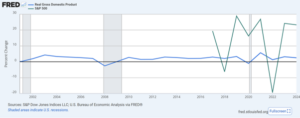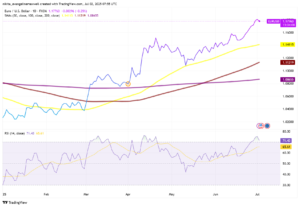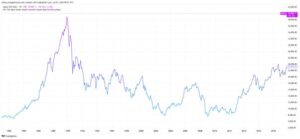Japan’s inflation showed signs of easing in February but continues to remain above the central bank’s target, reinforcing expectations that interest rates could rise further this year. Government data released Friday revealed that headline inflation rose 3.7% year-over-year, slightly down from January’s 4%, which was the highest in two years.
Meanwhile, core inflation, which excludes volatile fresh food prices, came in at 3.0%, slightly above expectations of 2.9%, though lower than January’s 3.2%. A more stable measure, core-core inflation—excluding both food and energy—climbed to 2.6% from 2.5%, indicating underlying price pressures persist.
This data was released just after the Bank of Japan (BOJ) chose to keep interest rates steady at 0.5% during its recent policy meeting. However, the central bank did suggest in its statement that inflation is likely to gradually increase, particularly over the 2025 fiscal year. The BOJ attributed this to factors such as high rice prices, weakening government price controls, and potential impacts from foreign exchange rates.
The BOJ also acknowledged ongoing uncertainties due to global trade developments and shifting policy directions in major economies.
Despite the easing, inflation has now stayed above the BOJ’s 2% target for 35 consecutive months, putting further pressure on the central bank to normalize its policy stance. The yen strengthened slightly after the inflation data was released, trading at 148.61 to the dollar, while the Nikkei 225 index saw a modest decline.
Adding to the pressure is a strong wave of wage growth. In Japan’s recent annual “shunto” wage negotiations, labor unions managed to secure an average 5.46% increase in wages starting in April, the largest in over 30 years. The Japanese Trade Union Confederation (Rengo) reported that small to medium-sized companies also achieved wage hikes over 5%—a rare milestone not seen since 1992.
Higher wages typically lead to stronger consumer spending, which may keep inflation elevated. This has led economists to believe that the BOJ may need to further raise interest rates in the months ahead.
In summary, while inflation cooled slightly in February, it remains well above target and combined with rising wages, the pressure is mounting on Japan’s central bank to consider further policy tightening.





